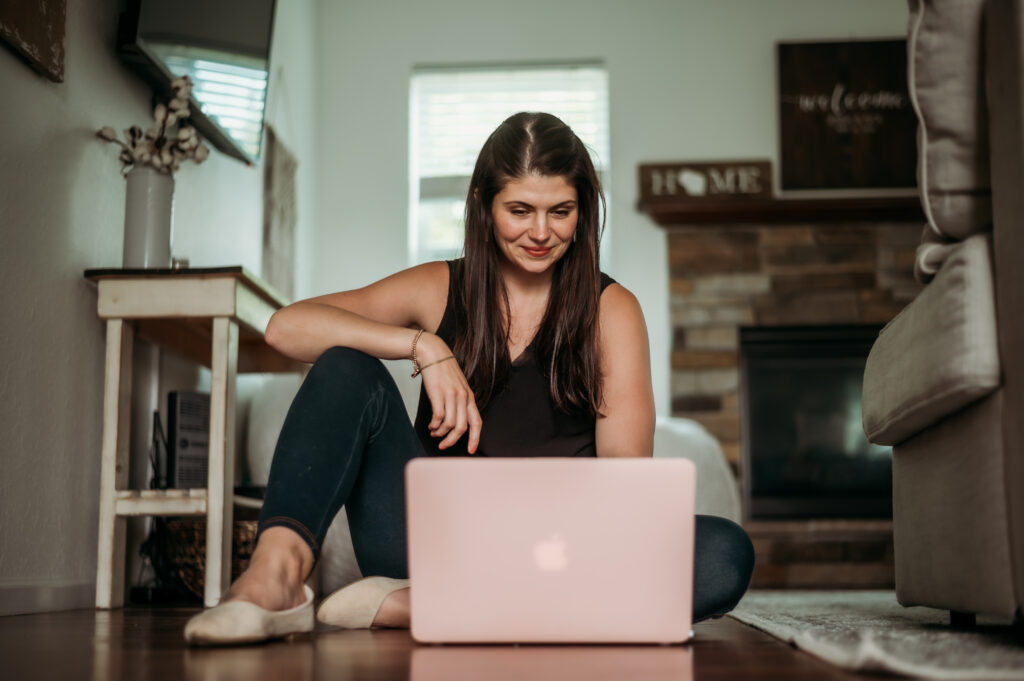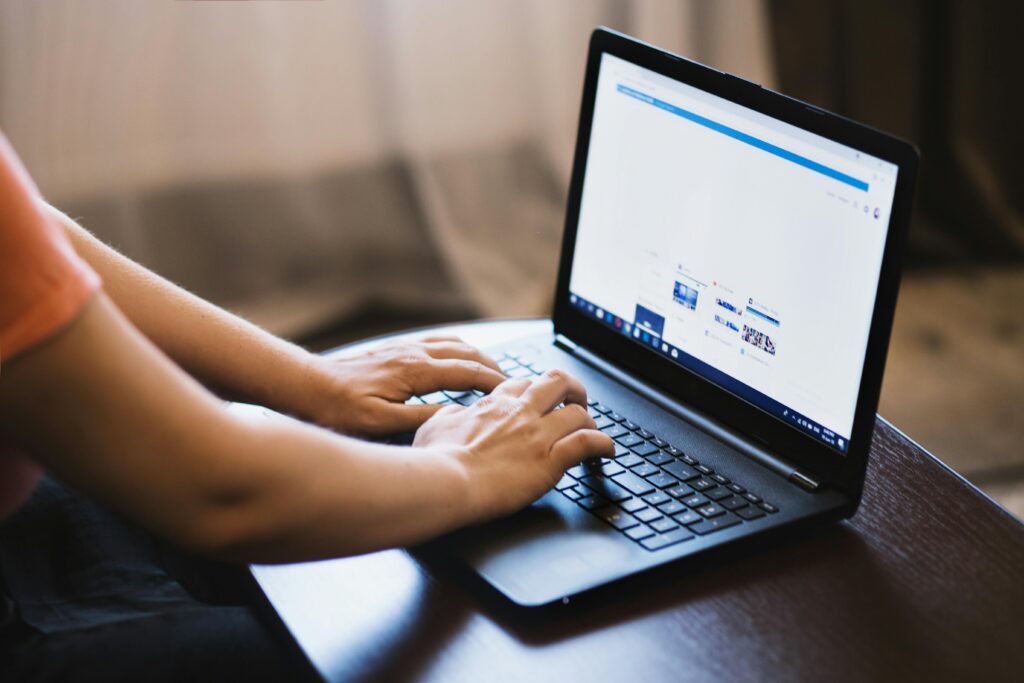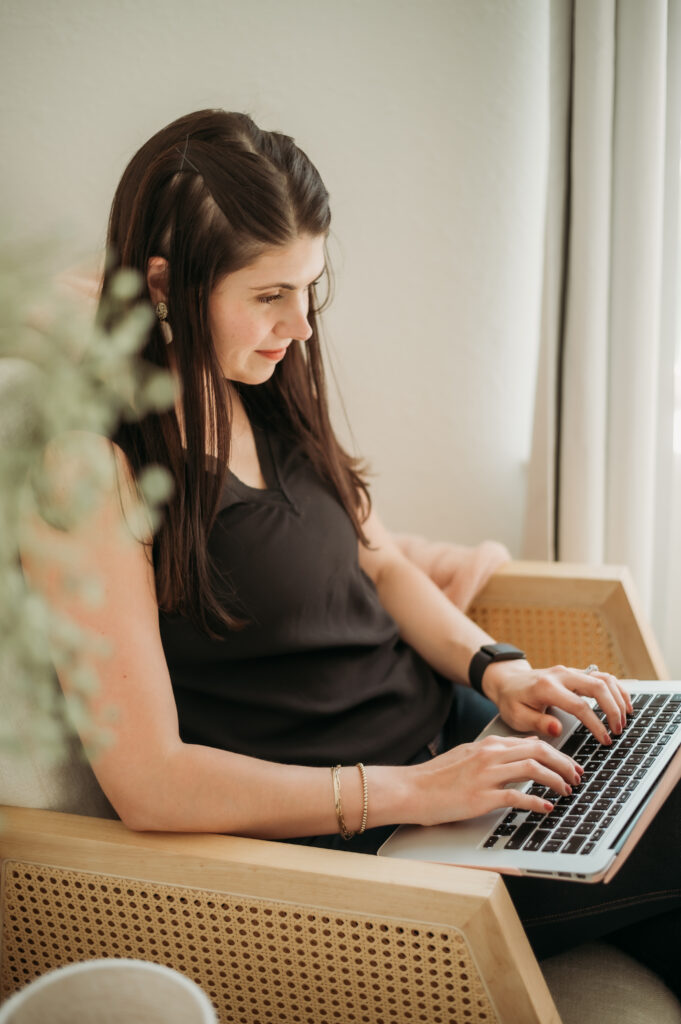How Social Media Feeds Anxiety: Managing Mental Health in the Age of Social Media
November 19, 2024
Social media is everywhere these days. Whether we’re scrolling through Instagram, checking Facebook, or catching up on TikTok, it’s become a huge part of our daily lives. But for those of us dealing with anxiety (and even OCD), social media can do more harm than good if we’re not careful. While it can connect us to others and keeps us informed, social media feeds anxiety and can fuel feelings of inadequacy, comparison, and even compulsive behaviors.
As a licensed professional counselor and someone who has worked closely with people managing anxiety and OCD for over 15 years, I’ve seen how social media can either help or hurt. In this blog, I’ll dive into how social media feeds anxiety and impacts our mental health, and give you some practical tips to make it work for you, not against you.

HOW SOCIAL MEDIA FEEDS ANXIETY
It’s no surprise that social media can worsen anxiety, especially if you already feel overwhelmed or uncertain. Let’s break down some of the most common ways social media feeds into anxiety:
Constant Comparison
It’s easy to fall into the trap of comparing yourself to others on social media. You’re scrolling, seeing perfectly curated photos of people’s vacations, relationships, jobs, and accomplishments. Before you know it, you’re wondering why your life doesn’t look the same. You might think, “Why don’t I have it all together like they do?” But here’s the thing—what you see on social media is only a highlight reel. No one’s life is as perfect as it seems online.
Constantly comparing yourself to others can make you feel like you’re never enough, which adds to your anxiety. Instead of being happy with your own progress, you end up focusing on what you think you’re missing.
FOMO (Fear of Missing Out)
We’ve all heard of FOMO, or the “fear of missing out.” Social media amplifies this by constantly showing us what other people are doing. Seeing friends hang out without you or watching influencers attend amazing events can spark feelings of exclusion or inadequacy. It’s easy to feel left behind or out of the loop, even if your life is going just fine.
FOMO is one of those sneaky contributors to anxiety because it makes you feel like you need to be doing more or being more involved—when really, you’re perfectly okay where you are.
Information Overload
Social media feeds into anxiety by overwhelming us with information. From news updates to personal opinions, we’re constantly bombarded with content. This can easily trigger anxiety, especially if you’re someone who’s sensitive to uncertainty or bad news. We’re not meant to process so much information at once, and social media makes it easy to spiral into anxious thinking. You might start wondering, “What if this happens to me?” or “How am I supposed to keep up with everything?”
The more we try to absorb, the more overwhelmed and anxious we become. It’s like an endless cycle of content overload that keeps our minds racing.
SOCIAL MEDIA AS A TRIGGER FOR OCD
For those who struggle with OCD, social media can be an even bigger challenge. It’s not just about feeling anxious—it can actually fuel compulsions and trigger obsessive thoughts.
Uncertainty Triggers
If you deal with OCD, you probably know how much it craves certainty. Unfortunately, social media thrives on uncertainty—whether it’s scrolling through ambiguous posts, seeing alarming news, or coming across conflicting opinions. These triggers can set off a spiral of obsessive thoughts, making you feel like you need to know more or check again for clarity.
Social media constantly feeds us information, but rarely gives us real closure or certainty. This leaves us feeling anxious and in need of reassurance. And what do we do when that happens? We keep checking.
Compulsive Checking
Speaking of checking, social media can easily become a place where compulsions thrive. You might find yourself checking notifications obsessively, refreshing your feed, or re-reading comments over and over. For someone with OCD, this constant checking becomes a way to seek reassurance or try to control the anxiety that’s building up.
But as we know, reassurance-seeking **LINK TO REASSURANCE SEEKINGS BLOG** only feeds the OCD cycle. Social media makes it harder to break out of this because the platforms are designed to keep us engaged and coming back for more. Before you know it, you’re stuck in a loop of checking, refreshing, and feeling more anxious.

SIGNS SOCIAL MEDIA MIGHT BE AFFECTING YOUR MENTAL HEALTH
How do you know if social media is contributing to your anxiety?
Here are a few signs to watch out for:
- You feel anxious, sad, or irritated after scrolling through your feed.
- You’re constantly comparing yourself to others and feeling like you’re not enough.
- You check social media compulsively, even when you don’t want to.
- You feel FOMO when you see posts about events, trips, or gatherings.
- You get overwhelmed by the sheer amount of information and can’t stop scrolling.
If any of these sound familiar, it might be time to reassess how social media feeds anxiety and impacts your mental health. The good news? You can absolutely change your relationship with social media and make it a healthier space.
TIPS FOR HEALTHIER SOCIAL MEDIA HABITS
Here are some tips to help you manage your anxiety and build healthier habits around social media:
- Limit your screen time
- Unfollow or mute accounts that trigger anxiety
- Take regular breaks
- Before you open social media, be mindful of your intentions and why you’re doing it
- Engage, don’t just scroll
USING SOCIAL MEDIA TO SUPPORT ANXIETY MANAGEMENT
Believe it or not, social media can also be a helpful tool for managing anxiety—if you use it the right way! It’s all about finding balance and making sure you’re using social media to support your mental health, rather than letting it trigger more anxiety.
Social Media as a Tool for Support and Community
Social media can be a great way to connect with people who understand what you’re going through. There are countless communities and support groups where you can share your experiences, ask questions, and learn from others dealing with anxiety and OCD. It’s empowering to know that you’re not alone, and social media can provide that sense of connection.
Following mental health advocates and professionals is another way to make social media work for you. Many therapists, advocates, and organizations share tips, tools, and encouragement to help you manage anxiety in healthy ways. (For example, my podcast All the Hard Things is a great resource for understanding anxiety and learning strategies to manage it.) You can find so many helpful conversations and tips from others who’ve been in your shoes.
Follow Uplifting and Educational Content
If you’re going to spend time on social media, make it a positive experience. Look for accounts that uplift, educate, and inspire you. Whether it’s following mental health advocates, joining anxiety support groups, or subscribing to podcasts like mine, there’s so much good content out there that can help you in your journey.

FINAL THOUGHTS: TAKING CONTROL WHEN SOCIAL MEDIA FEEDS ANXIETY
It’s clear that social media can be both a helpful tool and a source of stress. When social media feeds anxiety, it’s important to step back and take control of how you engage with it. By setting boundaries, being mindful of what you consume, and focusing on uplifting, supportive content, you can turn social media into something that helps rather than harms your mental health.
Remember, you have the power to change your relationship with it and create a healthier, more balanced online experience.
Ready to take action? If you’re feeling overwhelmed by how social media impacts your mental health, check out my masterclass 5 Essential Strategies for Managing Anxiety and Intrusive Thoughts and tune into my podcast for more tools to help you reclaim control over your anxiety and OCD. And remember, I’m always here with resources and tips to help you manage anxiety!
most popular episodes
Love my podcast?
Episode 112: Postpartum OCD and False Memory OCD
Imagine how in depth I can go in an online course. Instantly downloadable and game-changing. Take the next step towards an amazing life.